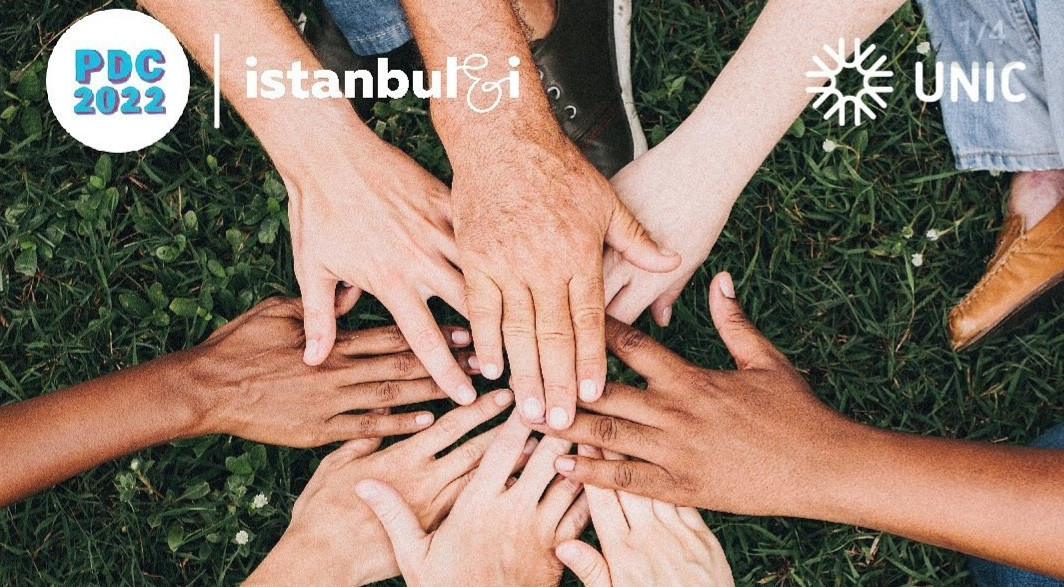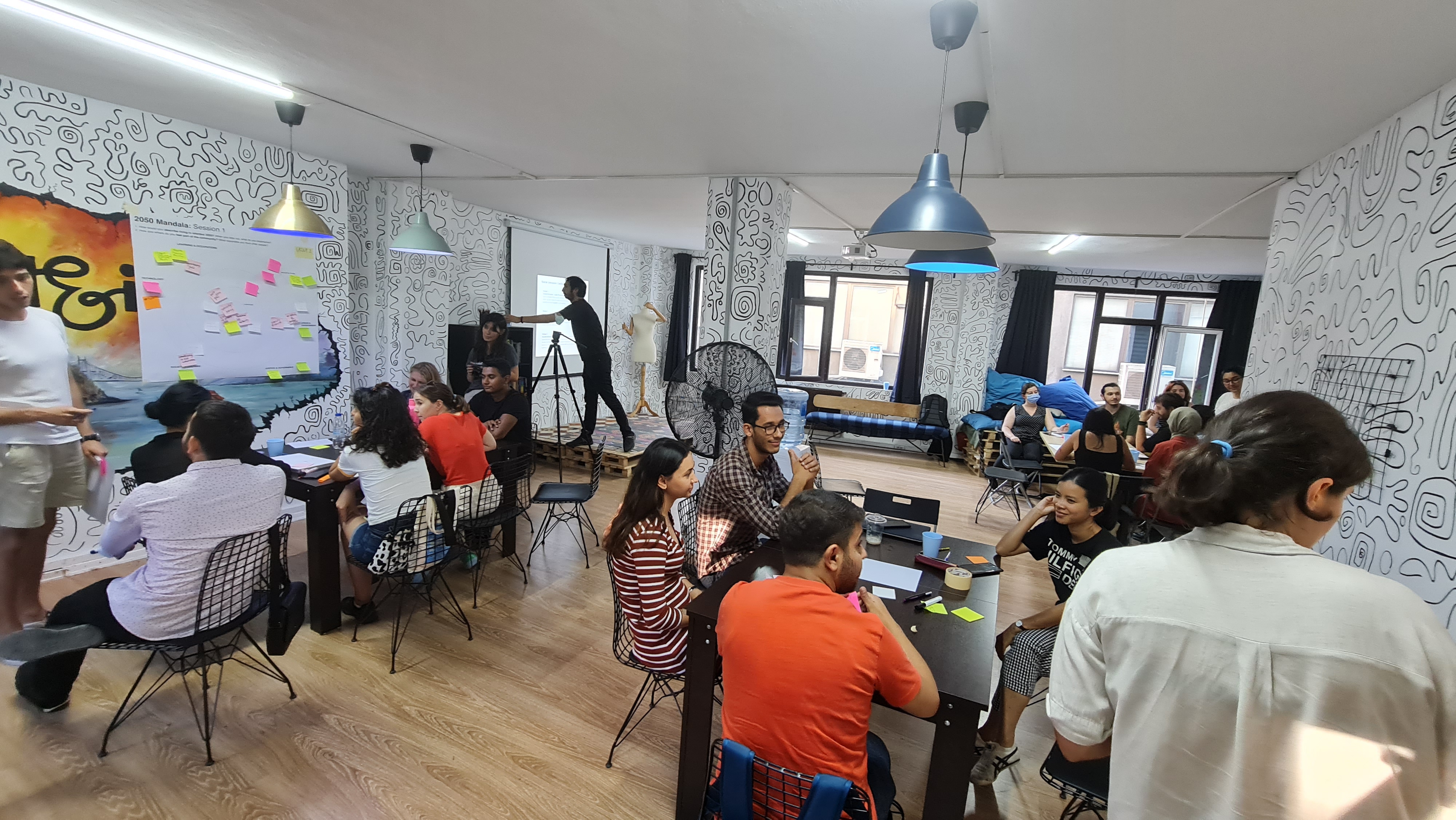The UNIC website uses cookies to improve your experience. Read our full Cookie Policy here.

On August 05, 2022 the ‘Social Inclusion of Migrants’ Pop-up Citylab was organized in the scope of the Participatory Design Conference (PDC) 2022. Organized in collaboration with the Graduate School of Social Sciences and Humanities (GSSSH) at Koç University, Istanbul & I (volunteer community) and the Koç University UNIC team, it was held at the ‘Istanbul & I’ offices in Istanbul with 23 participants. |

|
Commenting on the significance of the participatory methods relied on in the CityLab, Ramirez Galleguillos said, “… (it) allows to discuss the future, people's dreams and visions, and alternative realities as well as their perceptions of the present and their lived experiences. Additionally, it is a fun way to include people in research”. She continued, “As we invited both locals and migrants living in Istanbul, to me the best outcomes are related to how people from different cultures come together to build an alternative world, how they discussed their different perceptions of their life in Istanbul, and how they can even start some kind of bond by being part of the same teams”. |
New Book: The Reimagining of Urban Spaces
The Reimagining of Urban Spaces: A Journey Through Post-Industrial Cityscapes was published by...
06 Jan 2025
Read more »Lecture #3 | Superdiversity in Education, Organisations and Society (S...
Dr. Esin Aksay Aksezer and Dr. Birce Demiryontar (Koç University) present their current resear...
13 Jan 2025
Read more »Internship Experience at UNIC: A Journey of Growth and Cultural Exchan...
The internship offered more than professional growth—it was a cultural exchange that broadened...
19 Dec 2024
Read more »